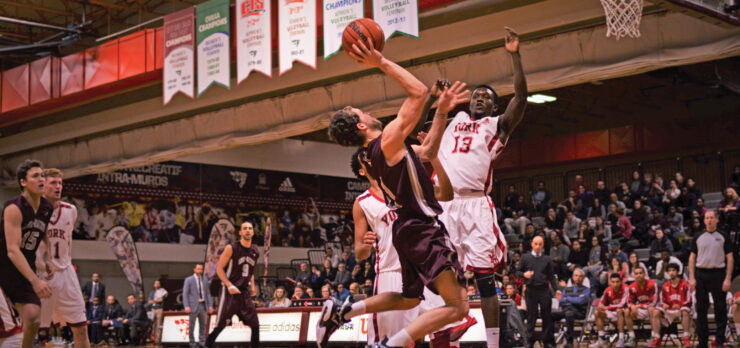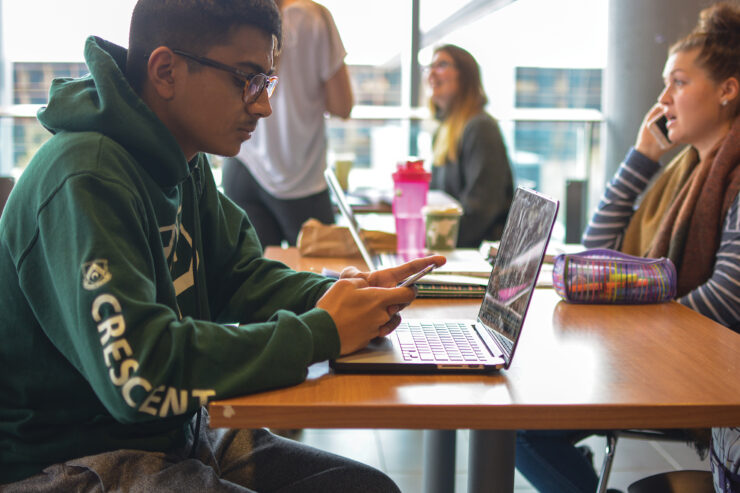Unopposed candidacy stems from bilingualism requirement, ‘10-hours rule’
The University of Ottawa’s Graduate Students’ Association (GSAÉD) held its first candidate debate on March 15 for the upcoming elections—to a very small audience.
The debate saw eight students in attendance, which is twice as much as last year, according to Shawn Philip Hunsdale, advocacy and communications coordinator for GSAÉD.
GSAÉD has seen consistently low student engagement in a variety of areas for the past few years.
While there is no total voter count publicly posted for past election results, and GSAÉD doesn’t measure this statistic, Hunsdale said the voter turnout was around 100 for the 2015 elections.
As for the 2014 elections, which also don’t have a publicly posted total voter count, the highest number of votes was for the referendum question regarding the bike co-op and sustainability centre, with 234 total votes. According to the university, there were 6,604 graduate students in 2014.
This puts the voter turnout at around 3.5 per cent for 2014, with a further turnout decrease in 2015. In the 2014 Student Federation of the University of Ottawa (SFUO) election, voter turnout was 11.6 per cent of eligible students, according to the SFUO website.
“This is also one of the challenges of organizing graduate students on a campus because so much of the work that they end up doing—people work often exclusively in their labs and with a professor,” said Hunsdale. “The notion of student life isn’t quite the same.”
Kashif Masud, a PhD student completing his third year in electrical engineering, attended the debate and described it as “non-publicized” in a tweet.
Each candidate is running unopposed in this year’s election, while two races were contested in the 2015 elections.
Masud said many students at the graduate level are from China, India and other countries in Asia, and that the bilingual requirement for executives within organizations like GSAÉD are excluding international students like them and himself, who often don’t speak French, from these positions.
Out of the 6,604 graduate students in 2014, 1,745 were foreign students, putting them at over a quarter of the grad student population.
Hunsdale said the ‘10-hours-a-week rule’ implemented at the university may also put students off from running for executive positions.
According to this regulation, graduate students may not work more than 10 hours per week at on-campus jobs, including teaching assistant and research assistant positions. GSAÉD executive positions also fall under this rule. While some other universities also have this rule, many do not, said Hunsdale.
Hunsdale said that governments are very conscious of how they fund education.
“They finance post-secondary educational institutions to get people to get in, complete their studies and get out,” he said.
He said to understand graduate studies it’s important to understand the idea of time to completion, and that if a student is taking more than the specified time to complete their degree it can be seen as taking up resources, like time with professors, from other prospective students.
“If it is demonstrated that you are working more than ten hours and there’s any delays in your program, the university could effectively say, ‘sorry, you’re not making progress at a sufficient enough pace, we point to this as the problem’ and you can be removed,” said Hunsdale.
Hunsdale said this is one of the reasons they get few candidates for executive positions, because many students prefer to use those designated 10 hours to work on campus in their academic field, which may be more beneficial to their career.
The GSAÉD election will run from March 22 to 24.





